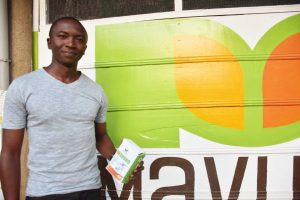 Holding a tightly packaged bag of banana powder, Baraka Merdi (’16) stands proudly in front of his Mavuno office. There is only one other organization or institution in Beni that brings the same amount of joy and pride as his current place of employment.
Holding a tightly packaged bag of banana powder, Baraka Merdi (’16) stands proudly in front of his Mavuno office. There is only one other organization or institution in Beni that brings the same amount of joy and pride as his current place of employment.
“I discovered myself at UCBC,” he said with a smile. “UCBC encouraged me to become a leader. I know now what I can achieve.”
UCBC was not simply about an education for Baraka. It was an opportunity to discover how he could contribute to the future of his country – a country the world often ignores. As president of the student body, he helped lead others to reimagine Congo and to think of themselves as future leaders who can “be the change” wherever their journey may take them.
Now Baraka carries the transformational spirit gained from UCBC into his current work with Mavuno, an organization that empowers local farmers and works to end extreme poverty.
As a research and market analyst, Baraka helps local farmers and partners flourish in agribusiness.
“Our purpose is to end extreme poverty in eastern DRC. We try to link farmers to the market, and we are building businesses around agriculture crops like maize, rice, plantain, and selling at a good price so that farmers may increase their profit from their work,” Baraka explained.
“I am hopeful. I am seeing our clients’ lives improving, especially in rural areas, because we are training them to create their own business. We are trying to bring them out of interdependence to independence. Some of them are succeeding and this gives me hope…I am really encouraged!”
Baraka Merdi studied finance and accounting at UCBC and graduated in 2016. He believes his experience and studies offered something beyond the benefits of securing a job and livelihood.
“I want my family to see we are creating a new generation in Congo and that UCBC taught us about transforming the world. I want to be part of that big vision and I want my family to be proud of me for being one of the people who will change this country,” he said.
On a practical level, UCBC’s bilingualism and computer training prepared Baraka for his job working with a global organization dependent on crossing language and technology barriers.
“UCBC prepared me to engage globally in the workplace. I currently work not only with Congolese, but with people from other countries and cultures both in and outside of Africa. English helps me to cross language barriers in my professional work, and I cannot spend one day without using a computer. These skills I learned at UCBC.”
One of the greatest lessons he learned at UCBC was to face challenges and to turn them into opportunities. For him, that has meant diligent work, holistic learning, and a new mindset. He believes UCBC foster these values.
Baraka explains, “UCBC is important because Congo needs a new generation who is formed and trained with the new mindset at UCBC. The training there is one of the weapons that this country can use to face all the challenges. There are faculty and students that our country needs. If I can give one message to Congolese youth, it is UCBC is the place to go and learn how to transform the world!”
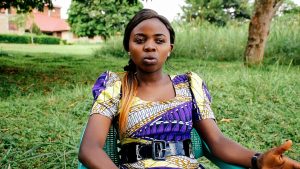
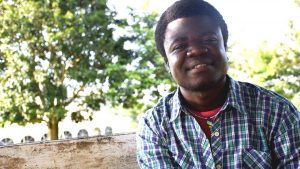
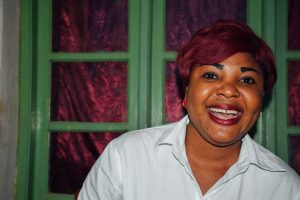
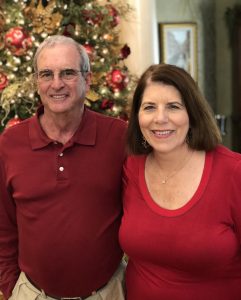 Would you tell us a bit about your background?
Would you tell us a bit about your background?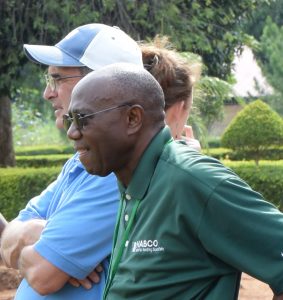 Tim: You know, Congo is a complex place for those of us who have spent time there. There is so much
Tim: You know, Congo is a complex place for those of us who have spent time there. There is so much